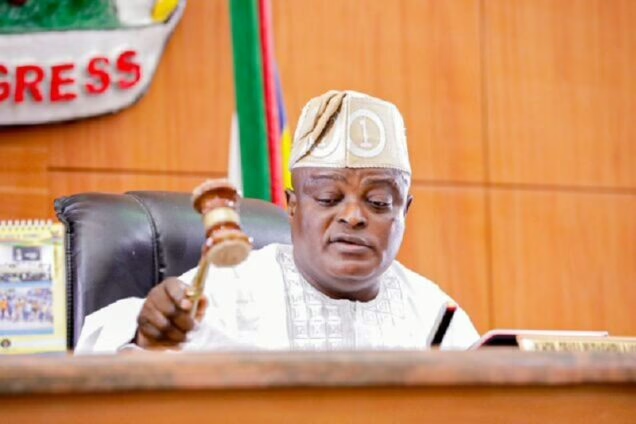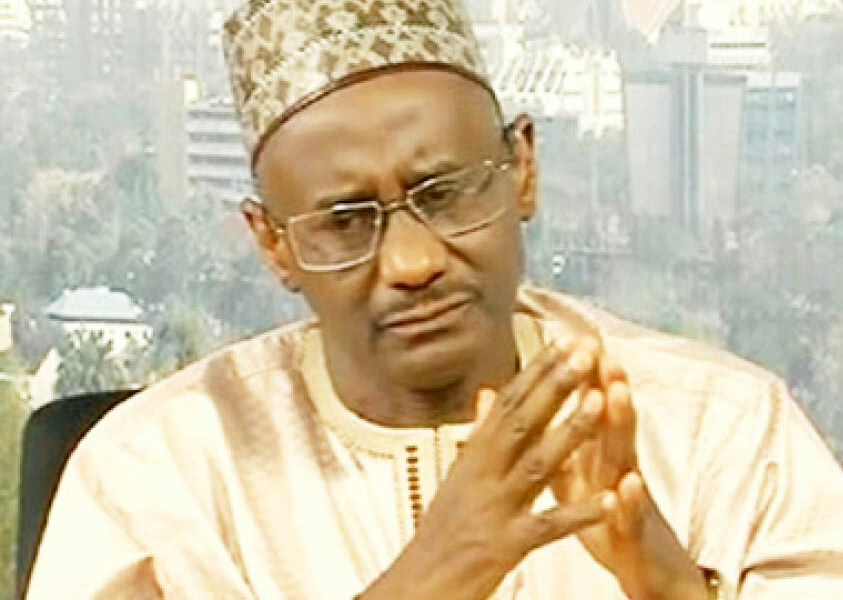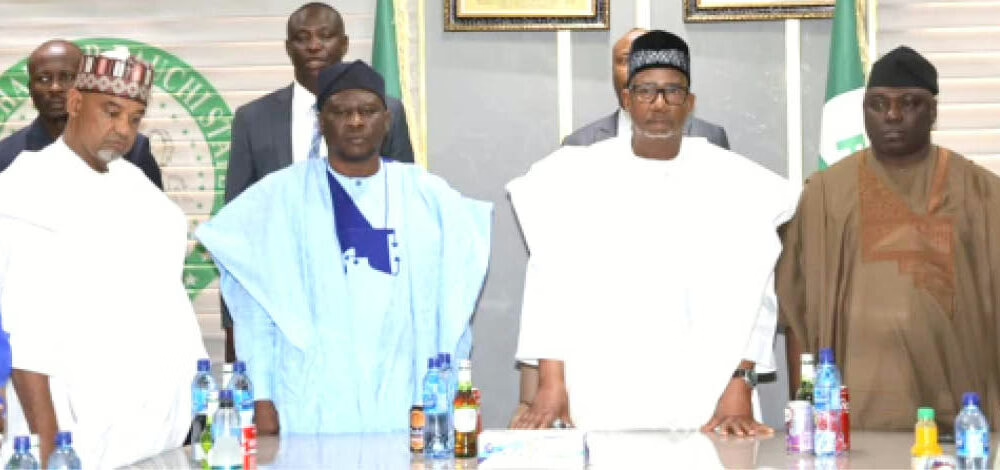![]()
![]()
By Our reporters


Nigerians woke up on April 3, 2024 and were jolted by the news that electricity tariff which hitherto was N66 per kilowatt had been increased to N225 per kilowatt.
Announcing the increase, in Abuja, Vice Chairman of Nigerian Electricity Regulatory Commission (NERC), Musliu Oseni, said that the increase was meant for customers in Band A, who enjoy not less than 20 hours of electricity supply a day.


But, Nigerians are still not impressed as they insist that, despite the increment for elite consumers, power supply remains erratic with long bouts of darkness affecting their business.
Some migrated to Band A still complain about the promised 20 hours which they say they do not enjoy.
The Band A customers, according to him, represent 15 per cent of the 12 million electricity customers in the country.
These are high-flying customers living in highbrow areas like Maitama, Asokoro, Garki in Abuja; Ikoyi, Victoria Garden City (VGC), Victoria Island and other erudite cities in Nigeria.


Minister of Power, Chief Adebayo Adekola Adelabu also alluded to this when he addressed the media, saying that these are the privileged class of customers who can easily pay for what they consume. So, the increase was not targeted at the low-end consumers or the masses.
In fact, some customers had been downgraded from Band A to Band B due to the fact that the distribution companies have not provided the r“We currently have 800 feeders that are categorised as Band A, but it will now be reduced to under 500. This means that 17 per cent now qualify as Band A feeders. These feeders only service 15 per cent of total electricity customers connected to the feeders.


“The commission has issued an order which is titled ‘April Supplementary Order’ and the commission allows a 225 kilowatts per hour”he said, noting that the review will not affect customers C, D and E who receive less hours of electricity per day.
However, industry players still express doubt over the regular supply of power, saying that the customers will still end up paying for darkness despite the increase.
The Managing Director (MD), Idfon Power Engineering Consultants (iPEC) Limited and former Chief Technical Officer of FGN Power Company, Engineer Idowu Oyebanjo said that if Nigerian Electricity Regulatory Commission (NERC) is increasing power based on regular supply of electricity, how would it monitor when a customer who’s supposed to have 20 hours does not get less?
“It’s meant for just only a few people who are on Band A. The only challenge I have there is, how do you ensure that those customers get 20-hour supply? There are things the distribution companies can do to ensure reliable and safe supply and we can help them to achieve this.
“How do you monitor that a customer who’s supposed to have 20 hours does not get only five hours in a day? How do you make sure that he doesn’t pay for estimated darkness?” he asked
A mini-grid developer, Foluso Alabi argued that the increase is overdue, insisting that Nigerians will not get a regular supply of electricity with low tariff
He said that the current tariff (N66/kilowatt), has not been cost reflective, adding that the power supply value chain has not been profitable.
“The power generation and supply have not been profitable in Nigeria. Tariff initially has been subsidised by government. To be fair, it has not been cost reflective in terms of generation, transmission and distribution. You’ll find out that the distribution companies (DisCos) have not been profitable.
“On the N900 billion subsidy the government promised in December, I don’t know where the government will get such money from. So, what the government is trying to do is let the market forces dictate price. Nigeria pays the lowest tariff in Africa. Kenya, Ghana, Cameroon pay higher tariffs. There’s no way Nigerians will pay N66 and expect a steady power. It is not possible.
“The increase is a right step in the right direction but there should be regulation to guide the cap if power must be resilient and stable” he maintained.
Meanwhile, the increase is not acceptable even at the political party level.
A chieftain of the All Progressives Congress (APC), Nze Chidi Duru, also expressed reservations on the hike.
Duru, who is a member of the National Working Committee and Deputy National Organising Secretary, heaped the blame on the inefficiency of the regulator, NERC.
According to Duru, the government cannot exonerate itself from the bands’ complexity, with agencies failing to class the society by having residential, commercial and industrial areas well separated.
“It is not the responsibility of Nigerians to redesign the network to realities on the ground, and certainly no Nigerian should pay for these failures.
“The truth must be told, it is not the cost reflective tariff that is being paid for by Nigerians. Rather, it is the cost of inefficiency and under investments in the industry that’s being passed on to customers. To redeem this situation, there is a need for NERC to go back to the conditionalities associated with the acquisition of the unbundled entities.
“The distribution companies (DisCos) must be made to invest in distribution equipment such that they don’t reject loads delivered to them by the generation companies (GenCos). We also believe that transformers and meters are essential equipment to their operations. The burden of supplies should not be transferred to end users.
“NERC must show seriousness and commitment to making the DisCos deliver on their responsibility to their customers,” he said.
The APC chieftain specifically requested that government should review the privatisation.
“If they look at the terms of the contract signed with the operators and if there is sufficient reason government should take over the agencies, DisCos and GenCos, it’s because none of them has delivered on the duties imposed on that contract.
“Otherwise, why is it that Nigerians are still buying their transformers, cables; providing electricity for themselves and still generating power through other sources and still consuming diesel at inappropriate levels. Those selling generators are selling more than before and the volume of kilowatts of power available in the country continued to hover around 2000 and 4000 and has never gone beyond that.
“Was that not a reflection that there is not enough investment in that industry and a reflection that those operators don’t understand the business? It is an indication that what they are there to do is to impose hardship on the average Nigerian and there are sufficient grounds to do that.
“It is a pity that this is happening at the time the government is working very hard to tackle the inflation, provide basic amenities to Nigerians yet an agency of government can impose such inordinate charges and bills without base and background on the people of this country.
“They (NERC) did it without the requisite checks and balances of what is needed to be done in the first place. It doesn’t work on the sense of logic that this should even happen in the first place,” Duru said.
Also, the Minority Caucus in the House of Representatives has also condemned NERC’s action on tariff increase.
The caucus, in a statement by the minority leader, Kingsley Chinda, noted: “This abrupt hike, which places an unbearable burden on the already strained populace, exacerbating economic hardships and widening the chasm of inequality, is inhuman and evil.
“Such a hike, which is over 200 per cent above the rate of inflation, utterly disregards the plight of ordinary citizens, who are grappling with the adverse effects of the removal of oil subsidy, galloping inflation, unemployment, and inadequate access to basic amenities” the caucus, said
Nevertheless, the deputy speaker, Benjamin Kalu, said the House upon resumption would look into the hike and resolve it amicably in a way that it would be a win-win for all parties.
“I can assure you that when we resume, it’s one of the things we are going to look into. We will look at the both sides of the coin to know a win-win approach to it because we cannot suffocate the investors, and also we cannot allow Nigerians to suffer unduly. So, it is one of the things we will look at by the time we resume and we will find a way to solving it” Kalu was quoted to have said in a radio programme.
The deputy chairman, House Committee on Power, Joshua Gana, who spoke in his personal capacity, said the parliament would likely interface with NERC and the various Distribution Companies (DisCos) on the hike,
“In line with the provisions of the Electricity Act and with a view of gaining understanding first and brainstorming for workable solutions for our citizens, public hearings can be encouraged to get responses from customers affected by Band A tariff increase” he opined
The same way, ordinary Nigerians have expressed anger over the increase, saying that it’s insensitive for the government to increase tariff in the midst of high inflation rate, high exchange rate, high cost of living and hardship.
Mr Mazi Ude, a resident of the Presidency Quarters at Phase 1, Karu in Abuja, said he does not understand what is meant by Band A, B, C, D, E and he’s totally against the increase and lopsidedness in payments of the said electricity tariff.
He said the hike will definitely affect the poor consumers, who are suffering to survive the harsh economic situation being experienced in the country today.
“It is another avenue to enrich the pockets of staff of the Abuja Electricity Distribution Company (AEDC) who will put unsuspecting customers on high bills.
For example, we are on Band A and are supposed to get electricity for a maximum of 20 hours but the highest we get in some days is about 12 hours, yet we pay high,” he lamented.
Another consumer, Hajiya Hajara Yakubu, said that in the area where she resides at Jikwoyi Phase 3 in Abuja, consumers are supposed to get 16 hours maximum electricity supply (Band B) but hardly get four hours supply.
She kicked against the electricity hike and said it will affect the poor as well as businesses in the area.
The consumer recalled an incident she had with AEDC when her prepaid meter began to consume high electricity bills. “If I load N5000, by the next day the whole money is gone. So, I had to go to AEDC office to complain and a meter engineer was sent to check the meter and he removed it,” she said.
She said AEDC official connected her directly to the source on the agreement that she will be paying N8,000 monthly and later the bill rose to N20,000 and is now N37, 900 a month.
Yakubu disclosed further that it is just recently that she learnt that the AEDC official should have connected her to the ‘pay as you consume’ source instead of the one they placed her on. “With this new system being adopted, how are you sure electricity consumers’ right will be protected?” she wondered.
Mr Phillip Chinemerem owns a water factory and also sells ice block, in Lokogoma, in the Federal Capital Territory (FCT). He frowned at the new billing system and categorisation.
Chinemerem said the government was insensitive to the plights of most business owners who would now pay double to run their businesses.
“This is not the best of times for such increase. The Federal Government should have allowed the former system until things normalise because of the removal of fuel subsidy.
“Because of the metering, I will begin to use my lister generating set full time. Fifty thousand naira (N50,000) worth of electricity unit is nothing to write home about. I cannot even use it to run my factory effectively.
“If you increase the cost of price, Nigerians will not patronise you. But they will not remember that the fault is from the government
Government should return to the statusquo until the economy improves” he said
Mary Mathias, a trader, said she had no problem with the increase in tariff but the scarcity of light in some areas.
“I have no problem with the increase. The Abuja Electricity Distribution Company (AEDC) should ensure that we have constant light. What is the point buying unit costly without constant electricity?. It is like paying for darkness.
“How many people can afford it in this hard time? I have not seen improvement in electricity. It is still the current system. I am in Band A.
“We do not get 20 hours of electricity as promised by the government. The weather is hot. Some of us are very careful before putting on our air conditioners, especially at night,” she said.
Reacting to the situation, Miss Faith Anoy, Ibout said that the Federal Government, has failed to work in line with the economic realities to help cushion the effects of inflation across Nigeria. She said that the sudden increase in electricity tariff may be the beginning of the death of small scale businesses across Nigeria.
Faith who is currently a serving youth corps member, observed that the future in Nigeria is not bright for the youths especially those seeking to venture into business and become self-reliant
“What I am saying is that the Federal Government and the DisCos are not being truthful enough to justify the categories of bands electricity users belong. It is obvious that the bands are not justifiable to say the least. I know that people do not get the load shedding that justifies the band categories they belong. There are even those living at the shanties and hinterlands with less than 6 hours light, yet placed at Band B and C. May be they need to explain details.
Mr Silas Haliru, a barbar based in Mararaba (a sub urban area of Nasarawa state), suggested that Nigerians should divert to an alternative power source to ensure their businesses survive the power holocaust.
“Let me tell you, we are yet to see the worst part of this administration. First, it was the removal of petroleum subsidy and now it is the increase of electricity tariff. And all within one year of being in office. As a self employed person who needs light to operate, I have decided to shift to inverter batteries to power my solar panels for power generation. And I suppose, many other Nigerians should do same. We know that power is needed in day-to-day businesses. It is needed for the empowerment of all small scale businesses. So, to ensure that the economy improves, there should be adequate and affordable power supply” he submitted
Mrs Jennifer James, however, questioned the need and benefit of power privatisation in Nigeria. She said that power supply across Nigeria, became worse after power was privatised.
“We knew when Buhari administration thought of probing the power privatisation but he left it inconclusive.
The fact remains that we need a new policy in power regulation because what we have now does not work, not even one bit”.Mrs James regretted
Meanwhile, a civil servant with the Ministry of Innovation Science and Technology, Clement Odeh who resides in Kubwa, in Abuja, said that though he really doesn’t know the band he belongs to, he had never had uninterrupted power supply for up to five hours.
He added that the power sector should be after how to improve their services not tariff increment because things are very difficult now.
“I think this whole thing is very confusing,as we talk now. I don’t really know the group I belong to but whichever one, I have never had light for up to five hours. The Federal Government should rather concentrate on how to improve on their services because there are some days that we don’t even have light totally. They need to work on their services, especially this period that the heat is too harsh” he noted.
Another resident, Umar Ibrahim said the government should have put more efforts in making meters available for Nigerians before tariff increment.
He lamented that though he paid for meter for a long time he had not been able to access it.
“ There are lots of Nigerians that don’t have meters. So, without it how can the government calculate the tariff? I have paid for a meter but I am yet to collect it. But with what I am seeing now it is like I now prefer the direct connection. Some of my friends that have meters are lamenting about how expensive it is” Odey recalled.
Speaking on the availability of light, he said that in his area light is being rationed and none of the classifications (A,B,C,D and E) have ever enjoyed light up to eight hours a day.
The reaction of Shebwokpma 2 Community in Abuja is not different from other Nigerians as it said that the increase would heavily impact on essential public services and businesses already facing economic challenges.
The community, like many Nigerians, is apprehensive about the burden this tariff increase places on households and small businesses, especially considering the country’s economic crisis.
In the light of the challenges faced by the power sector in Nigeria, including issues like the lack of meters, high gas prices, system losses, and inadequate electricity generation, the chairman of
Shebwokpma 2 Community, Ayoh Ogon, is concerned about the implications of the tariff increase on their daily lives.
According to him, the majority of the community members have discovered that they are on Band B, purportedly meant to joy 16 to 19 hours of electricity supply but the community constantly experiences “low current, exploitative bills and irregular power supply, amongst others.
“There’s no way we enjoy 16 to 19 hours electricity supply” he said
Another community member, simply called Alhaji, who is constantly calling on the executives of the community to address the poor electricity supply said: “We are constantly having very low and fluctuating current to the extent that it cannot power many of our electrical appliances. This hike is totally not acceptable” he stated
Another community member who will not want his name mentioned said: “I think we, in this area, are in Band B (16-19hrs) of power supply. So we should not bother ourselves with this wicked increase. All we should care about is the sustenance of the so- called 16-19 hours which I doubt we even enjoy”
Another community member said: “These are really distractions by the government. Even if we are on 6 hours tariff band, have we seen up to that in the last two days? People are just talking about the band issue as if it is what will bring the light. These guys have no clue on how to fix the power challenge in the country”
Furthermore, another civil servant living in Karonmajigi, Miss Happiness James, said she was panicking when she first heard about the increase in electricity tariff, but became relieved after she learnt that her area was not part of the Band A category that was affected by the hike.
“I thank God that I am not in the category of those whose electricity charges were increased. When I first heard about the increase I was very angry. I was already cursing the government for wanting to crush us with harsh economic policies, but I later read in the news that the hike was not for everyone. I then checked the category I belonged with a link that a friend sent to me and found that I was in Band B.
“It is really a huge relief knowing that I can continue managing my expenses without additional financial burden” she said
Similarly, Mr Emmanuel Ojoh, another resident of Karonmajigi, expressed his gratitude for not being affected by the situation.
“With the current situation in Nigeria and how the cost of living is so high, I am very happy and grateful that I am not part of those who will be paying more for electricity. As it is now, I am already paying too much for electricity that is not even available. The cost of fuel is too high to power my generator. The cost of solar is only affordable to those who are well-to- do. I think the government needs to really consider the masses in making all these policies. Minimum wage is still the same for so many years yet the cost of everything keeps going up. It is totally unfair” he lamented.
But in the midst of the hullabaloo and confusion amongst Nigerians, an agency of government is commending NERC for taking a good step
Acting Executive Vice Chairman/Chief Executive Officer, Federal Competition and Consumer Protection Commission (FCCPC), Dr. Adamu Abdullahi said that the decision of NERC represents a crucial step towards upholding consumer rights and ensuring fairness within Nigeria’s electricity industry.
He said that NERC’s decision to penalise AEDC reinforces FCCPC’s strong advocacy for protecting consumers from unfair market practices, as mandated by FCCPC Act 2018, advocating more robust and vigilant enforcement, as well as greater transparency in billing and power supply, as a balance to the recently increased tariff for Band A customers
FCCPC thus encouraged NERC to mandate DisCos to meter all unmetered Band A customers within 60 days to ensure accurate billing and protection of consumers from arbitrary estimations, hoping that the decision will address some of the concerns and promote consumer welfare under the current service reflective tariff regime.
It also urged NERC to vigorously enforce the cap on estimated bills and ensure compliance with the required daily supply for respective tariff bands (A to E), thereby promoting fairness in billing practices.










